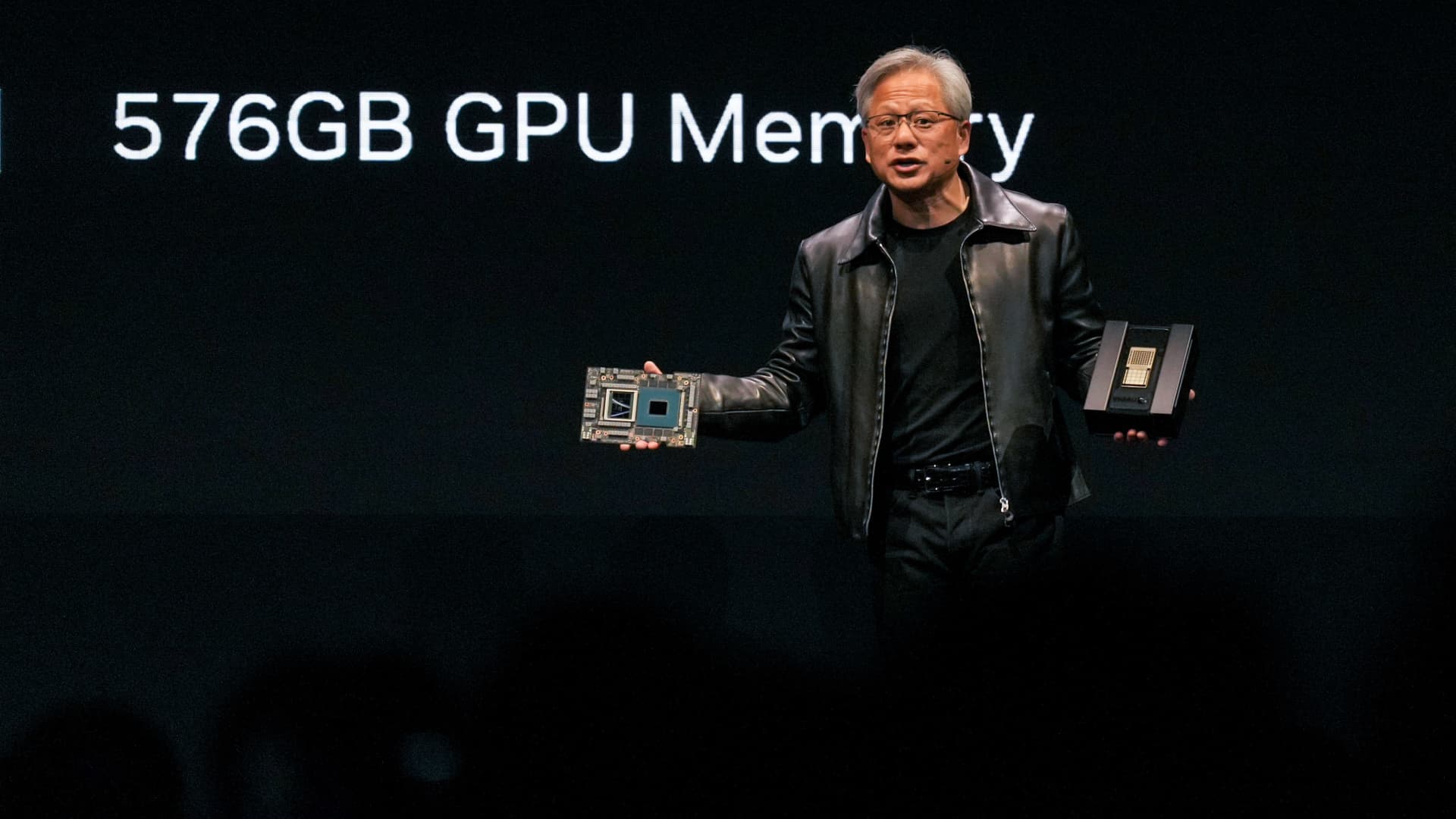Nvidia president and CEO Jensen Huang speaks at the COMPUTEX forum in Taiwan. “Everyone is a programmer. Now, you just have to say something to the computer.” (Photo by Walid Berrazeg/SOPA Images/LightRocket via Getty Images)
Sopa Images | Lightrocket | Getty Images
No longer will programmers need to write lines of code, only for it to display the dreaded “fail to compile” because of a missing semicolon.
How will this be done? By generative artificial intelligence, Huang said during his keynote speech at the Computex forum in Taiwan on Monday.
At his first public keynote since the pandemic, Huang introduced a new AI supercomputer platform called DGX GH200, aimed at building generative AI models.
Generative AI is a type of artificial intelligence technology that can produce various types of content, including text, imagery, audio and synthetic data.
“This computer doesn’t care how you program it, it will try to understand what you mean, because it has this incredible large language model capability. And so the programming barrier is incredibly low,” Huang pointed out.
“We have closed the digital divide. Everyone is a programmer. Now, you just have to say something to the computer.”
Nvidia says that generative AI is the “most important computing platform of our generation” as individuals and companies move to create new apps and leverage on generative AI in the process.
Every single computing era, you could do different things that weren’t possible before.
Creative professionals will be able to create images with a simple text prompt, while programmers can accelerate application development and debugging efforts, the company said. Even architects can generate 3D models from 2D floor plans.
“Every single computing era, you could do different things that weren’t possible before,” Huang said, adding that “artificial intelligence certainly qualifies.”
He explained that this computing era is “special in several ways”.
The CEO said generative AI is able to understand information other than just text and numbers. It “can now understand multimodality, which is the reason why this computing revolution can impact every industry,” he added.
Unlike traditional models of computer application development, which require new applications and new hardware to accommodate advances like A.I., Huang said generative A.I. will not only be able to impact new applications, but enhance old ones.
“Every application that exists will be better because of A.I…. It can succeed with old applications. And it’s going to have new applications. The rate of progress, because it’s so easy to use, is the reason why it’s growing so fast.”










